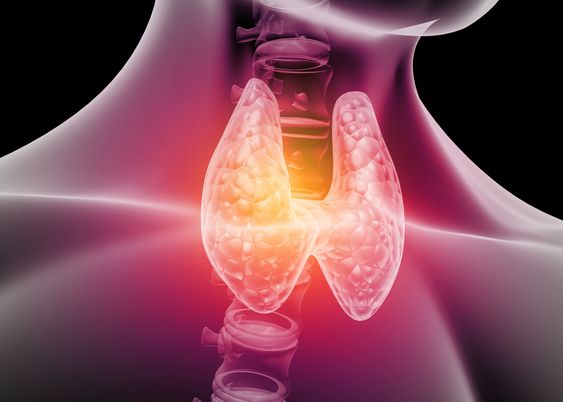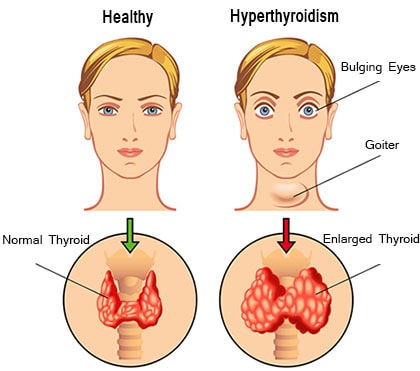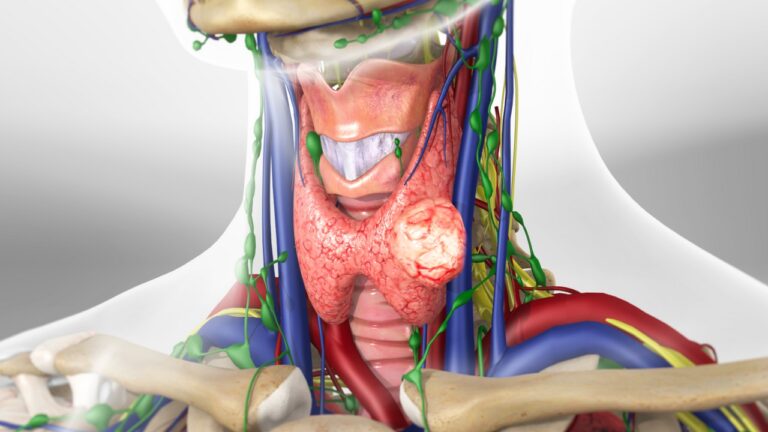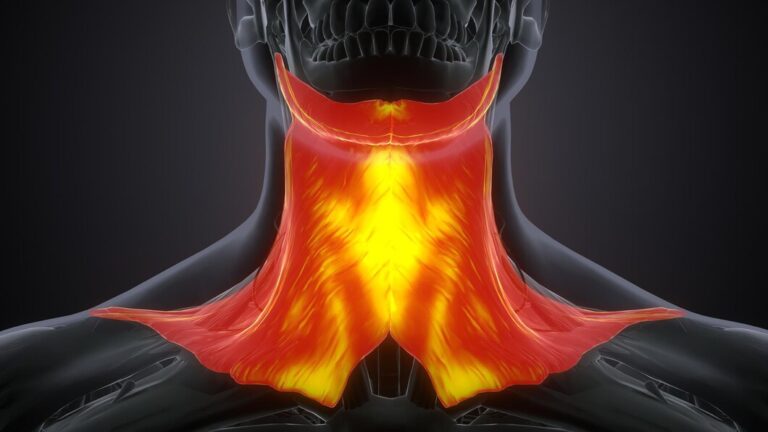Hyperthyroidism In Women: Unique Considerations And Impacts
Hyperthyroidism, an overactive thyroid condition, is a hormonal disorder that affects various aspects of health and well-being. While both men and women can develop hyperthyroidism, women are more prone to experiencing this condition. In this article, we will explore the unique considerations and impacts of hyperthyroidism on women, delving into the prevalence, risk factors, symptoms, and specific challenges that women may face in managing this thyroid disorder.
The Prevalence of Hyperthyroidism in Women
Thyroid disorders, including hyperthyroidism, are more prevalent in women than in men. According to medical studies, women are approximately five to ten times more likely to develop hyperthyroidism than men. The reasons behind this gender disparity are multifaceted and involve hormonal fluctuations, autoimmune factors, and genetic predispositions.
Risk Factors for Hyperthyroidism in Women
Understanding the risk factors associated with hyperthyroidism in women is crucial for early detection and effective management. Some common risk factors include:
Autoimmune Conditions: The most common cause of hyperthyroidism in women is Graves’ disease, an autoimmune disorder where the immune system mistakenly attacks the thyroid gland. Women are more susceptible to autoimmune conditions, making them more prone to Graves’ disease.
Pregnancy: The thyroid experiences significant changes during pregnancy, and some women may develop hyperthyroidism during this time, known as gestational hyperthyroidism. Additionally, postpartum thyroiditis, which can involve periods of hyperthyroidism, is more common in women.
Age: Women, particularly those between the ages of 20 and 40, are at a higher risk of developing hyperthyroidism.
Family History: A family history of thyroid disorders, especially autoimmune thyroid conditions, increases the likelihood of hyperthyroidism in women.
Smoking: Cigarette smoking has been linked to an increased risk of developing Graves’ disease, contributing to the higher prevalence of hyperthyroidism in female smokers.
Symptoms of Hyperthyroidism in Women
Hyperthyroidism manifests through a variety of symptoms, and women may experience these differently than men. Common symptoms include:
Weight Loss: Unexplained weight loss despite an increased appetite is a common symptom of hyperthyroidism in women.
Heart Palpitations: Elevated levels of thyroid hormones can lead to increased heart rate and palpitations, which may be more noticeable in women.
Menstrual Irregularities: Hyperthyroidism can disrupt menstrual cycles, leading to lighter or irregular periods. Some women may also experience fertility issues.
Fatigue and Weakness: Despite the increased metabolic rate, women with hyperthyroidism may experience fatigue and weakness due to the strain on the body.
Heat Intolerance: Women may find it challenging to tolerate heat, experiencing excessive sweating and discomfort.
Emotional Changes: Hyperthyroidism can affect mood, leading to anxiety, irritability, and difficulty concentrating. Emotional changes may be more pronounced in women.
Impacts on Reproductive Health
Hyperthyroidism can have significant impacts on reproductive health in women. It may interfere with the menstrual cycle, causing irregularities and, in some cases, amenorrhea (absence of menstruation). Fertility can be affected, making it challenging for women with uncontrolled hyperthyroidism to conceive.
During pregnancy, hyperthyroidism poses unique considerations. It can result in issues like premature birth, low birth weight, and preeclampsia if left untreated. Proper management and monitoring are essential for women with hyperthyroidism who are pregnant or planning to conceive.
Thyroid disorders are also linked to an increased risk of miscarriage. Adequate thyroid hormone levels are crucial for the development of the fetus, and imbalances can negatively impact the early stages of pregnancy.
Management and Treatment Considerations
The management of hyperthyroidism in women involves addressing both the symptoms and potential impacts on reproductive health. Treatment options may include:
Antithyroid Medications: Medications like methimazole and propylthiouracil work to reduce the production of thyroid hormones and are commonly used to manage hyperthyroidism, especially in women of childbearing age.
Radioactive Iodine Therapy: This treatment option aims to destroy part of the thyroid gland using radioactive iodine. While effective, it is not recommended during pregnancy or breastfeeding.
Beta-Blockers: These medications help alleviate symptoms such as heart palpitations and tremors, providing relief while the underlying thyroid issue is addressed.
Thyroidectomy: Surgical removal of the thyroid gland may be recommended in certain cases, particularly if other treatments are not well-tolerated or if there’s a concern about cancer.
Special Considerations During Pregnancy
Managing hyperthyroidism during pregnancy requires careful consideration of both maternal and fetal health. Medication doses may need to be adjusted, and regular monitoring of thyroid hormone levels is essential. A collaborative approach involving endocrinologists and obstetricians ensures comprehensive care for pregnant women with hyperthyroidism.
Postpartum, women who experienced gestational hyperthyroidism or postpartum thyroiditis should continue monitoring their thyroid function. Some women may develop persistent hyperthyroidism, necessitating ongoing management and follow-up care.
Psychosocial Impacts
Beyond the physical symptoms, hyperthyroidism can have psychosocial impacts on women. The emotional changes, including anxiety and irritability, can strain relationships and affect overall well-being. Women may find it challenging to balance the demands of daily life, work, and family responsibilities while managing the symptoms of hyperthyroidism.
Coping mechanisms and support networks play a crucial role in helping women navigate the emotional challenges associated with hyperthyroidism. Open communication with healthcare providers, mental health professionals, and support groups can provide valuable resources and strategies for managing the psychosocial impacts of the condition.
Conclusion
Hyperthyroidism in women presents unique considerations and impacts that extend beyond the physical symptoms. The prevalence of autoimmune conditions, hormonal fluctuations during pregnancy, and the intricate interplay of thyroid function with reproductive health make hyperthyroidism a complex disorder for women. Early detection, proper management, and a holistic approach that considers the individual’s reproductive goals are essential for optimizing the quality of life for women living with hyperthyroidism. Through increased awareness, research, and a collaborative healthcare approach, we can better address the unique challenges that hyperthyroidism poses for women and enhance their overall well-being.








